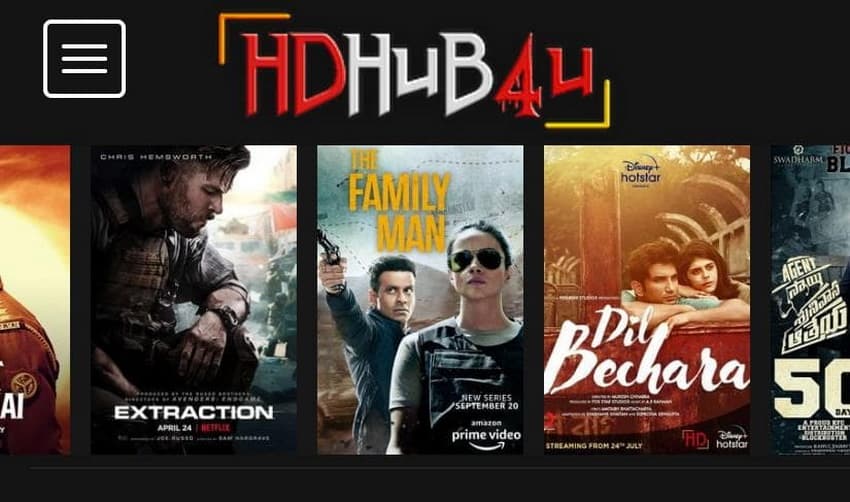Hdhub4u & Search Fails: What You Need To Know
Are you captivated by the allure of instant access to a universe of cinematic delights? The promise of boundless entertainment, just a click away, is a tempting siren song, yet it's crucial to navigate these waters with a clear understanding of the hidden currents that swirl beneath the surface.
The digital landscape has dramatically reshaped how we consume entertainment. Streaming services like Netflix, Amazon Prime Video, and Disney+ have redefined the very definition of movie-watching, but a parallel universe thrives in the shadows a realm of websites and platforms that offer, often illegally, access to a vast library of films. These sites, frequently bearing names designed to evoke a sense of immediacy and convenience, can be incredibly appealing to users seeking the latest releases without the constraints of subscription fees or theatrical release schedules. But, as the saying goes, there's no free lunch, and the apparent ease of access comes at a steep price, both legally and ethically. The allure, then, is undeniable, but the consequences are equally so, and the informed consumer must tread carefully.
The primary appeal of these platforms, which are often flagged by search engines with warnings a testament to the dubious nature of their content is the promise of instant gratification. New movies, often ripped from theatrical releases or sourced from other copyrighted materials, become available almost immediately after their official debut. This immediate access is a powerful draw, especially for those seeking to avoid the expense of cinema tickets or the commitment of a subscription. The convenience factor cannot be overstated. A user can, in theory, find and watch virtually any film they desire at any time, all without paying a cent. The perceived value is exceptionally high, and the temptation to succumb to this siren call is understandable. However, this seemingly straightforward path conceals layers of complexity that those seeking entertainment, should be more aware of.
Before we delve into the legal and ethical implications, let's examine the operational mechanics of these platforms. They typically operate by aggregating links to video files hosted on third-party servers. These servers are often based in countries with less stringent copyright laws or are deliberately obscured to avoid legal challenges. The websites themselves act as a front-end, providing a user-friendly interface to search for and select desired movies. This creates a veneer of legitimacy, masking the illegal activities taking place behind the scenes. The owners of these websites often profit from advertising, which pays for hosting and maintenance, or, more nefariously, they may deploy intrusive software and malicious programs which can compromise users' devices.
The legal ramifications of accessing content on these platforms are significant. Copyright law protects the rights of content creators, including filmmakers, studios, and distributors. Downloading or streaming copyrighted movies without permission constitutes copyright infringement, a violation which can lead to civil lawsuits and, in some cases, criminal charges. Penalties can range from hefty fines to imprisonment. The legal landscape varies by jurisdiction, but the core principle remains the same: unauthorized access to copyrighted material is illegal. The argument that one is simply "viewing" a movie and not actively "downloading" it is often a weak one, as streaming involves the temporary storage of data on the user's device, which can be deemed an infringing act.
The ethical considerations are equally important. When individuals access content through illegal means, they are directly contributing to the erosion of the film industry. The creators, the actors, the writers, and the countless other individuals involved in the production of a film rely on the financial success of their work to sustain their livelihoods. Illegal downloads and streams deprive these individuals of their rightful earnings. This ultimately disincentivizes investment in new films and creative projects, leading to a decline in the quality and quantity of movies produced. Choosing to view content through legal channels, be it theaters, streaming services, or purchase, is a crucial way of supporting the art and the people who bring it to life.
- Sabrina Carpenters Measurements Height Weight Body Stats
- Beware Free Movies Tv Shows Online Risks Alternatives
Another significant issue is the security risk associated with using these platforms. They often contain malware, viruses, and other malicious software that can compromise user devices and expose them to a variety of threats. The risk of identity theft, financial fraud, and system corruption is real. While antivirus software can offer some protection, the constant threat of new and evolving malware means that no level of security is foolproof. The act of visiting these websites carries a significant risk that users must recognize. Data breaches and phishing scams are common tactics deployed by those who benefit from these illegal sites. This underscores the importance of prioritizing digital safety and being critical about the sources of content we consume.
The proliferation of these sites is partly fueled by the speed at which technology changes and the lack of unified enforcement. They frequently move and re-emerge under new names to avoid legal actions. This cat-and-mouse game between copyright holders and the operators of illegal platforms makes it extremely difficult to effectively combat copyright infringement. Moreover, the global nature of the internet and the varying enforcement of copyright laws across different countries create further hurdles for legal authorities. The sheer volume of illegal content also poses a challenge: there is simply too much to monitor, making it hard to find and remove every instance of copyright infringement. The battle is ongoing, and new methods of copyright protection and enforcement are always needed.
Consider the evolution of the film industry. From the early days of cinema, piracy has been a shadow. Early adopters of technologies like VHS and DVD players faced a constant barrage of copycat products and illegally distributed films. The introduction of the internet only amplified this problem. The ease with which digital content can be copied and shared has made it extremely difficult to stop copyright infringement. The film industry continues to adapt and find new ways to counter piracy, including employing advanced technologies that allow it to trace and block illegal streams and downloads. The challenge is to maintain the delicate balance between innovation, accessibility, and copyright protection.
The consumer also has a role to play in this dynamic. Education and awareness are important components of any solution. The public needs to be informed about the legal and ethical consequences of accessing content through illegal channels. By understanding the impact of their actions, consumers can make informed decisions about where they spend their entertainment dollars. Promoting the value of intellectual property and the importance of supporting content creators is a key aspect of this process. Consumers who have grown up during an age when music and film are readily available and easily accessed, may not fully appreciate the value of ownership and the necessity of respecting copyright. Efforts should be made to increase the respect for copyright and the financial investment made by film studios.
The rise of legitimate streaming services has created new avenues for accessing films. These platforms offer a wide range of movies and TV shows, providing consumers with a convenient and affordable alternative to piracy. However, the cost of subscriptions to multiple streaming services can be prohibitive for some, making illegal options more appealing. In response, the industry is exploring different business models, such as ad-supported streaming, to make content more accessible. More cooperation and integration between different streaming platforms would also greatly benefit the consumer and further reduce demand for illegal options. The development of effective and affordable digital distribution channels is crucial for the industry's survival.
The future of content consumption will undoubtedly be shaped by evolving technologies and changing consumer preferences. Artificial intelligence, blockchain technology, and other innovations offer new possibilities for combating piracy and protecting copyright. The use of blockchain technology for tracking content ownership and managing distribution rights holds potential for increasing transparency and reducing opportunities for illegal activity. AI-driven tools can assist in identifying and removing copyrighted material from illegal platforms, but constant adaptation and innovation remain key to staying ahead of the curve. A united effort, involving filmmakers, distributors, and consumers, is necessary to create a sustainable and ethical landscape for entertainment.
In conclusion, while the promise of instant, free access to the latest movies on platforms like those flagged by search engines is attractive, it comes at a price that should give serious consideration. The legal, ethical, and security risks associated with these sites are significant. The informed consumer must be aware of the consequences and make choices aligned with supporting content creators and respecting copyright law. The ongoing transformation in the way we access entertainment calls for vigilance, awareness, and a commitment to the ethical consumption of content. Only then will we preserve the vitality of the film industry and the art it creates for generations to come.
The best way to combat the temptation of free access is to embrace legal alternatives like subscription services, movie rentals, and buying. These methods provide a safe, ethical, and reliable way to enjoy the films. Consider the value of supporting the industry by paying for content and help keep the industry thriving.
- Viral Mms Privacy What You Need To Know Digital Age
- 4k Hdr Streaming Your Guide To Highquality Movies Expert Insights

HDHub4U Download Your Ultimate Guide To Movies And Entertainment

HDHub4U 2025 Your Ultimate Guide To The Latest In Movie Streaming

HDHub4U New 2025 Your Ultimate Guide To The Latest Streaming Hub